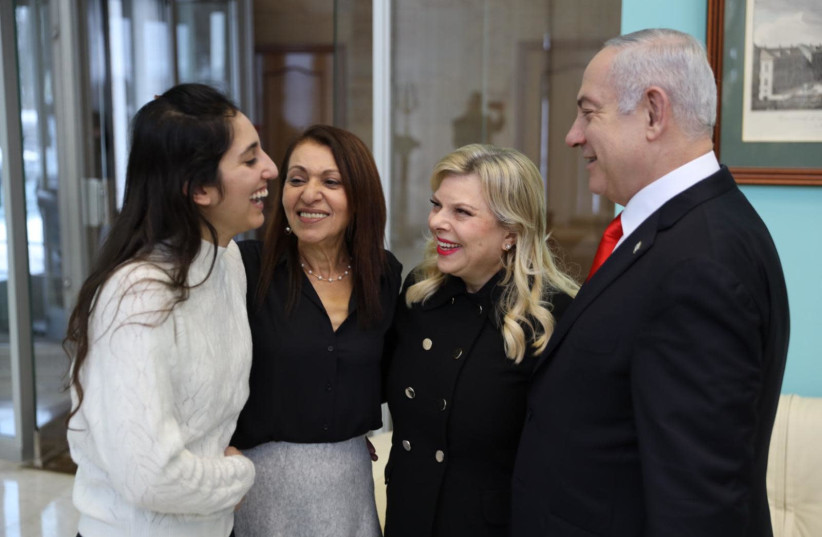The nation heaved a collective sigh of relief when Mordi and Natali Oaknin, who were detained last week for alleged espionage by Turkish authorities after photographing the presidential palace in Istanbul, returned to Israel on a government-chartered jet yesterday.
The smooth handling of the sensitive affair by the Bennett-Lapid government was a welcome change. Rather than making public comments that could have caused more harm than good, government leaders together with President Isaac Herzog negotiated quietly behind the scenes to secure the couple’s successful release.
“Prime Minister Naftali Bennett and Foreign Minister Yair Lapid thanked the president of Turkey and his government for their cooperation,” Bennett and Lapid said in a joint statement. “They also expressed their respect to the Oaknin family for their strength during this complicated time and for their cooperation with the Ministry of Foreign Affairs. Additionally, they conveyed special thanks to President Herzog for his efforts to help bring them home.”
There was none of the fanfare, pomp and ceremony of the previous Netanyahu government. Neither the prime minister nor foreign minister rushed to the airport to pose for photographs with the Oaknins, as Benjamin Netanyahu would have certainly done.
“Thank you to the entire nation of Israel. Thank you to everyone who helped and supported and got us freed,” said the Oaknins, who are both bus drivers for the Egged company, upon their return to their home in central Israel. Their daughter Shiraz said, “I am in the clouds in a way you can’t describe. I want to say thank you so much to the whole country.”

It was a sharp contrast to the way Netanyahu handled the Naama Issachar affair in 2019. After Russian authorities arrested the Israeli-American backpacker for alleged drug smuggling during her stopover in Moscow en route home to Israel from India, Netanyahu personally secured a pardon from Russian President Vladimir Putin – and then flew her and her mother home from Moscow on his plane in a much-publicized flight. A Netanyahu aide later called Issachar’s mother to chastise her after she neglected to mention the premier in a post thanking those who campaigned for her release.
As analyst Herb Keinon noted in this newspaper at the time, “Might the way Israel responded to Issachar whet the appetite of Turkey’s President Recep Tayyip Erdogan or some unsavory and hostile character in the Jordanian government to nab an Israeli traveler to be used for leverage for something they want from Jerusalem?”
According to Israeli officials, Bennett dispatched a top emissary to Turkey to secure the release of the Oaknins, and Israel ultimately paid nothing in return. Religious Services Minister Matan Kahana said Turkish authorities had realized that the Oaknins were innocent civilians and did not demand anything in return for their release.
We commend the current government for getting the Oaknins home quietly, calmly and safely without too much noise, in-fighting or a public tiff with Turkey. The Oaknins were clearly just taking photographs as tourists enjoying the sites, and were not spying, as Turkish media initially reported and Israel strongly denied.
The Oaknin affair was a lesson in how quiet diplomacy can be more effective than loud speeches and defiant press conferences, however eloquent they are. It was a lesson in how this coalition, as fragile as it is, can get things done if it joins hands and stands together in the interests of the State of Israel.
It was also a lesson for all Israelis – travel to Turkey is not advised. This is clearly a destination where Israelis are no longer safe. And if you are still planning to visit there, be alert and vigilant. Among other things, don’t take selfies or photographs of sensitive sites, and don’t loudly advertise the fact that you’re Israelis in your dress and behavior.
And if you get into trouble, give the authorities an opportunity – like the Oaknin family did – to resolve the problem quickly and quietly.
In short, we can all learn a lesson from the responsible manner in which the Oaknin affair was conducted by the Bennett-Lapid government. As former Indian prime minister Atal Bihari Vajpayee once said, “Quiet diplomacy is far more effective than public posturing.”
